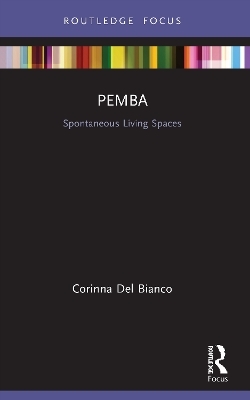
Pemba
Routledge (Verlag)
978-0-367-63752-1 (ISBN)
Pemba: Spontaneous Living Spaces looks at self-built dwellings and settlements in the case study city of Pemba in the Cabo Delgado region of Mozambique.
Self-built houses born from need, in haste and with limited economical resources are often considered to be temporary structures but frequently become an integral part of the urban fabric, representative of a local culture of living. The study is part of the Spontaneous Living Spaces research project, and through a variety of documentation tools, it investigates the evolution of the architectural and urban elements that characterize self-built dwellings in Pemba.
The evolution of the spontaneous living culture creates new forms of living in the city connected to local cultural expressions and the environment. These are placed in relation to the traditional and contemporary living cultures, settlement trends and the natural environment.
Covering a history of housing in Mozambique and unpacking four settlement types in Pemba, this book is written for academics, professionals and researchers in architecture and planning with a particular interest in African architecture and urbanism.
Corinna Del Bianco, PhD, is an adjunct professor of urban design at the Politecnico di Milano, Italy. Her research and professional interests regard the documentation and analysis of the places’ cultural identity with a focus on the culture of living in self-built urban environments. She is a founder and board member of the Fondazione Romualdo Del Bianco, a private foundation based in Florence, Italy, dedicated to dialogue among cultures.
Foreword by Michael Turner
Abstract
1 Introduction
1.1 Spontaneous Living Spaces, a research project
1.2 Understanding Africa’s great cultural chance
1.3 A glance at Mozambique
2 Studying the Mozambican self-built houses in the city of Pemba
2.1 The relevance of the current housing issue in Mozambique
2.2 Pemba and its relevance in the dwelling issue
2.3 Research goals
2.4 Methodology and essential literature review
2.5 Chapters organization
3 An interpretative framework of habitation in Mozambique
3.1 The origins of the Mozambican house
3.2 Outlining the urbanization trends over the history of Mozambique: from a rural to an urban society
4 Understanding Pemba
4.1 An integrated analysis
4.2 City scale overview
4.3 Framing the Pemba case study
5 Unpacking four settlement types in Pemba
5.1 The four selected neighbourhoods: selection and survey
5.2 Formation and recent evolution
5.3 Urban morphology
5.4 Houses’ spaces and functions
5.5 Elements and objects
5.6 Types analysis and typology determination
5.7 New characters of living
6 Conclusions
List of figures and tables
Acronyms
Essential Glossary
Acknowledgements
| Erscheinungsdatum | 22.12.2022 |
|---|---|
| Reihe/Serie | Built Environment City Studies |
| Zusatzinfo | 2 Tables, black and white; 5 Line drawings, black and white; 17 Halftones, black and white; 22 Illustrations, black and white |
| Verlagsort | London |
| Sprache | englisch |
| Maße | 138 x 216 mm |
| Gewicht | 158 g |
| Themenwelt | Naturwissenschaften ► Biologie ► Ökologie / Naturschutz |
| Naturwissenschaften ► Geowissenschaften ► Geografie / Kartografie | |
| Sozialwissenschaften ► Soziologie ► Spezielle Soziologien | |
| ISBN-10 | 0-367-63752-9 / 0367637529 |
| ISBN-13 | 978-0-367-63752-1 / 9780367637521 |
| Zustand | Neuware |
| Haben Sie eine Frage zum Produkt? |
aus dem Bereich


